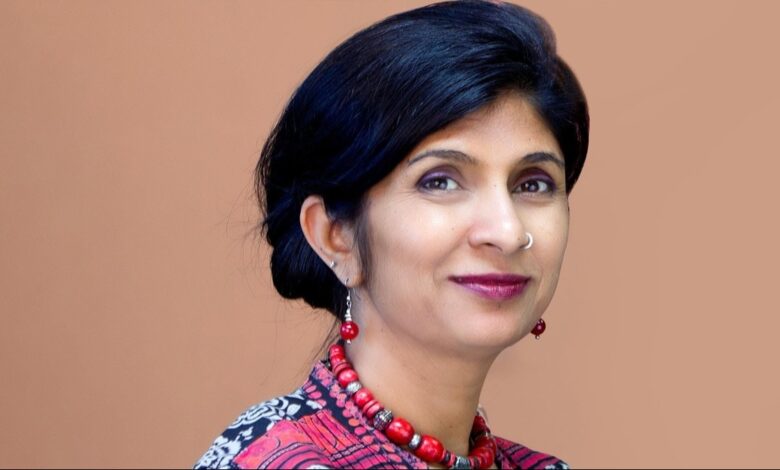‘You have to be a bit of a megalomaniac’: Veteran VC investor Vani Kola lists out what it takes to be a successful entrepreneur

In the realm of venture capital, where investments can make or break start-ups, Vani Kola’s approach stands out as a beacon of clarity and purpose. As the co-founder of Kalaari Capital, Kola brings a unique perspective rooted in her unwavering focus on product-centricity and founder empathy.
Talking to Mukesh Bansal, the co-founder of Myntra, on his podcast, Kola points out that the essence of successful investing lies in aligning with founders who possess a relentless focus on their product’s vision and purpose. “Because I’m a product-centric person, which is why I like to do seed and seed early-stage investments,” she explained. Maintaining a specific fund size allows Kalaari to hone in on early-stage companies, where Kola’s expertise in understanding product vision truly shines.
Kola also revealed to Bansal that when assessing potential investments, she primarily looks at the importance of discerning founders’ clarity and insights into their product. “What is the product purpose? What is the product experience, and the clarity of that, and how much clarity and insights they have matters,” she said. Rather than fixating on lengthy business plans or market projections, for Kola, the founders’ unique insights into the problem they’re solving and their commitment to building a product consumers will love is what ought to be prioritised.
Interestingly, Kola, who spent over 22 years in Silicon Valley before coming to India, believes that the essential difference between the cultures of West and the East, does seep into the way businesses are built and run. But how are the two ecosystems different? Firstly, she emphasises the point about market size, stressing that the scale and rapid access to markets in Silicon Valley often overshadow the operational intensity required in India. “The speed of business in the US is a different speed, and in India, it’s not a good or a bad thing, but you just have to tune into this,” she said.
Moreover, Kola points out the absence of tech giants like Google or Facebook in India, emphasising the challenges faced by Indian start-ups in finding suitable acquirers. “Firstly, we don’t have the PIPE (private investment in public equity) companies,” she noted. “And secondly, they themselves have a certain market cap that doesn’t exist here.” This scarcity of acquirers with comparable market cap and cash reserves poses unique challenges to Indian start-ups.
Furthermore, Kola delved into the cultural disparities between Eastern and Western societies, noting the deeply ingrained community culture in the East versus the individualistic nature of Western culture. “Start-ups have to be somewhat warped to align with individualistic culture,” she observed. “You have to be a bit of a megalomaniac, believing in your conviction despite others’ doubts,” she added. This attitude of unwavering belief in one’s vision is crucial for entrepreneurs navigating the complexities of the startup journey.
Addressing the entrepreneurial mindset in India, Kola also emphasised the importance of capital efficiency and realistic timelines for building successful businesses. “You have to gear for a longer journey,” she advises. “Building businesses in India will take a lot longer for many reasons, and you have to build at that pace,” she said.
Coming to evaluating start-ups, for Kola what is important are product-centric founders who have unique insights into solving pressing problems. “The more there is insight and clarity, the market matters, but not all founders know how to estimate the market,” she explained. “What I’m looking for is a unique value proposition that solves a problem.”
Kola’s investment philosophy extends beyond mere numbers; she seeks founders who possess a deep passion for problem-solving and a clear vision for their business’s future. “The primary thing you’re looking for is unique insight about the problem and also the product approach,” she affirms. Whether a founder is fresh out of college or boasts years of industry experience, Kola values their ability to dive deeply into problems and craft innovative solutions.
But why are products key? In Kola’s view, a successful business hinges on its ability to create products that resonate deeply with consumers. “Just an obsession about building something that somebody is going to love. If you achieve that, then a lot more people will also like it, and the business plan will [also] build itself,” she remarked.



